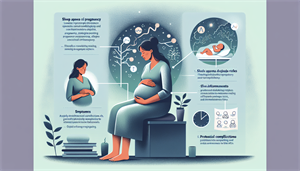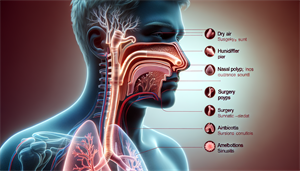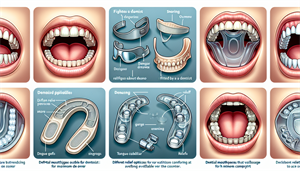
Can Sleep Apnea Cause Miscarriage in Pregnant Women?
Pregnant women diagnosed with sleep apnea often grapple with this worry, and current evidence indicates a troubling link. This article will present key findings that illuminate the potential risks for both mother and unborn child, assessing how this sleep disorder may contribute to complications including miscarriage.
Key Takeaways
-
Sleep apnea in pregnant women can increase risks for both maternal and fetal health, including gestational diabetes, preeclampsia, and potentially leading to miscarriage or developmental issues in the fetus.
-
Non-invasive treatments like CPAP therapy alongside lifestyle modifications such as sleeping on the left side and using pregnancy pillows are effective in managing sleep apnea symptoms during pregnancy.
-
Regular napping may help alleviate symptoms of sleep apnea in pregnant women, and early diagnosis followed by suitable treatment options like CPAP, lifestyle changes, and, in severe cases, medical interventions are critical.
Understanding Sleep Apnea and Its Prevalence in Pregnancy
Sleep apnea is a sleep disorder marked by repeated interruptions in breathing during sleep, often causing loud snoring and daytime sleepiness. In pregnant women, the prevalence of developing sleep apnea, particularly in the third trimester, is up to 26%.
Key symptoms may include loud snoring, gasping, and pauses in breathing during sleep. But how does pregnancy influence the occurrence of sleep apnea? The onset of sleep apnea during pregnancy is often attributed to natural weight gain and elevated hormones, which become more pronounced as pregnancy progresses into the third trimester.
Conditions such as obesity hypoventilation syndrome may contribute to sleep apnea in pregnant women. Acknowledging these factors aids in early diagnosis and management.
The Impact of Sleep Apnea on Maternal Health
Sleep apnea isn’t just a matter of disrupted sleep; it can have significant health implications for expecting mothers. For instance, sleep apnea during pregnancy can increase the risk of developing gestational diabetes and preeclampsia, a pregnancy complication characterized by high blood pressure and potential damage to organ systems, most often the liver and kidneys. Pregnant women with sleep apnea also face an increased risk of developing gestational hypertension - high blood pressure during pregnancy.
Moreover, according to data from the National Institutes of Health, patients with maternal sleep disordered breathing, such as obstructive sleep apnea (OSA), have a 2.47 percent risk of death before being discharged after delivery, compared to a risk of 0.13 percent for those without OSA. Clearly, managing sleep apnea is critical for the health of mothers-to-be.
Investigating the Link: Sleep Apnea and Miscarriage Risk
On top of the health risks for mothers, sleep apnea can also pose risks for unborn babies. Research suggests a link between sleep apnea and an increased risk of miscarriage. We need to examine this link in detail and understand the contributing risk factors.
How Obstructive Sleep Affects Fetal Development
Obstructive sleep apnoea, also known as obstructive sleep apnea, can lead to a condition known as intermittent hypoxemia, characterized by sleep apnea affects such as:
-
Brief periods of low oxygen levels in the blood Adversely affecting fetal development
-
Poor neural outcomes such as language and cognitive delays, attention deficits, and behavioral problems
-
Metabolic dysfunction
-
Oxidative stress Inflammation
-
Altered glucose metabolism Inflammation caused by sleep disorders like obstructive sleep apnea can have detrimental effects on placental function and fetal growth.
This could potentially result in conditions such as stillbirth and fetal growth restriction due to excessive placental inflammation.


